“I'm not in pursuit of happiness, I'm happy in pursuit; ready to happen everywhere I go.”― Bernard Kelvin Clive
INTRODUCTION
Using the Dualistic Model of Passion (DMP), Passion is defined as a strong inclination toward a self-defining activity that people like (or even love), find important, and in which they invest time and energy on a regular basis.
Notice....
- When does time stand still?
- What are you doing when you feel bliss and inner peace?
- What gets you out of bed in the morning?
- Why do you do what you do?
The model proposes the existence of two types of passion: harmonious and obsessive.
Harmonious passion originates from an autonomous internalization of the activity into one's identity while obsessive passion emanates from a controlled internalization and comes to control the person. Through the experience of positive emotions during activity engagement that takes place on a regular and repeated basis, it is posited that harmonious passion contributes to sustained psychological well-being while preventing the experience of negative affect, psychological conflict, and ill-being.
Obsessive passion is not expected to produce such positive effects and may even facilitate negative effects, conflict with other life activities, and psychological ill-being. Research supporting the proposed effects and processes is presented and directions for future research are proposed.
ONE MESSAGE
Discover the role of your passions that drive your behaviors and virtuous activities. Whilst uncovering the role your top 5 passions play in your own sustainable psychological well-being.
Story - My Top 5 passions
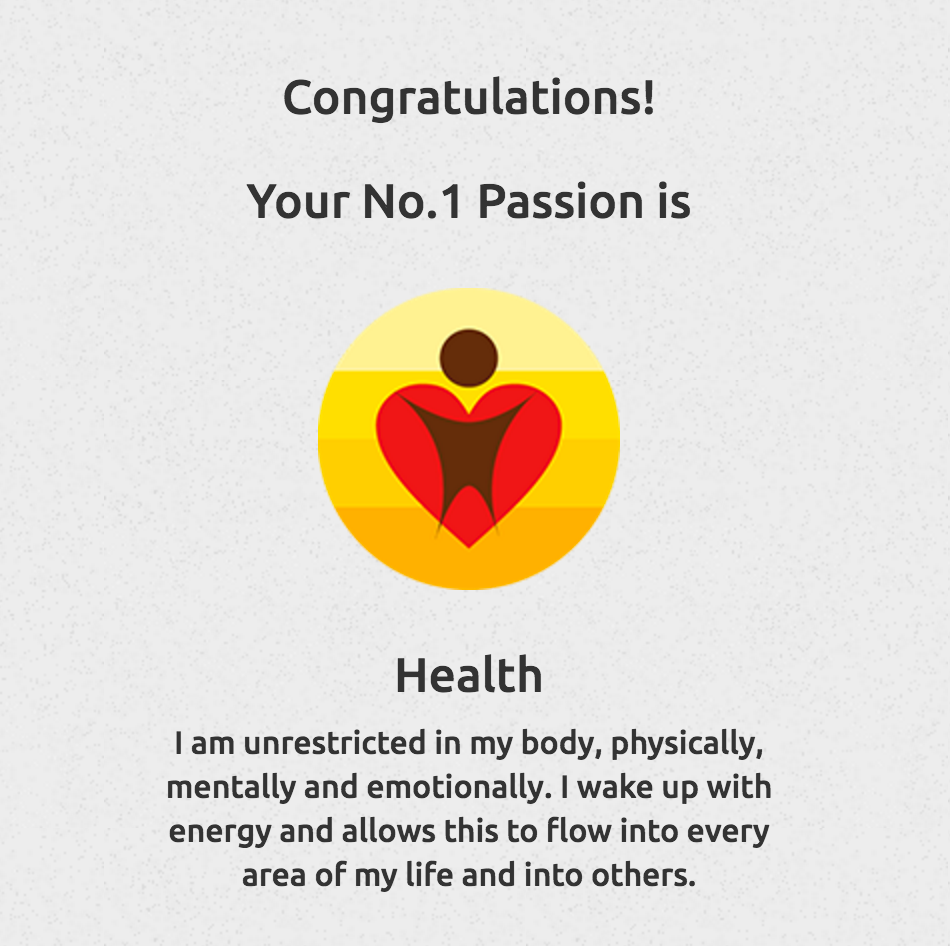
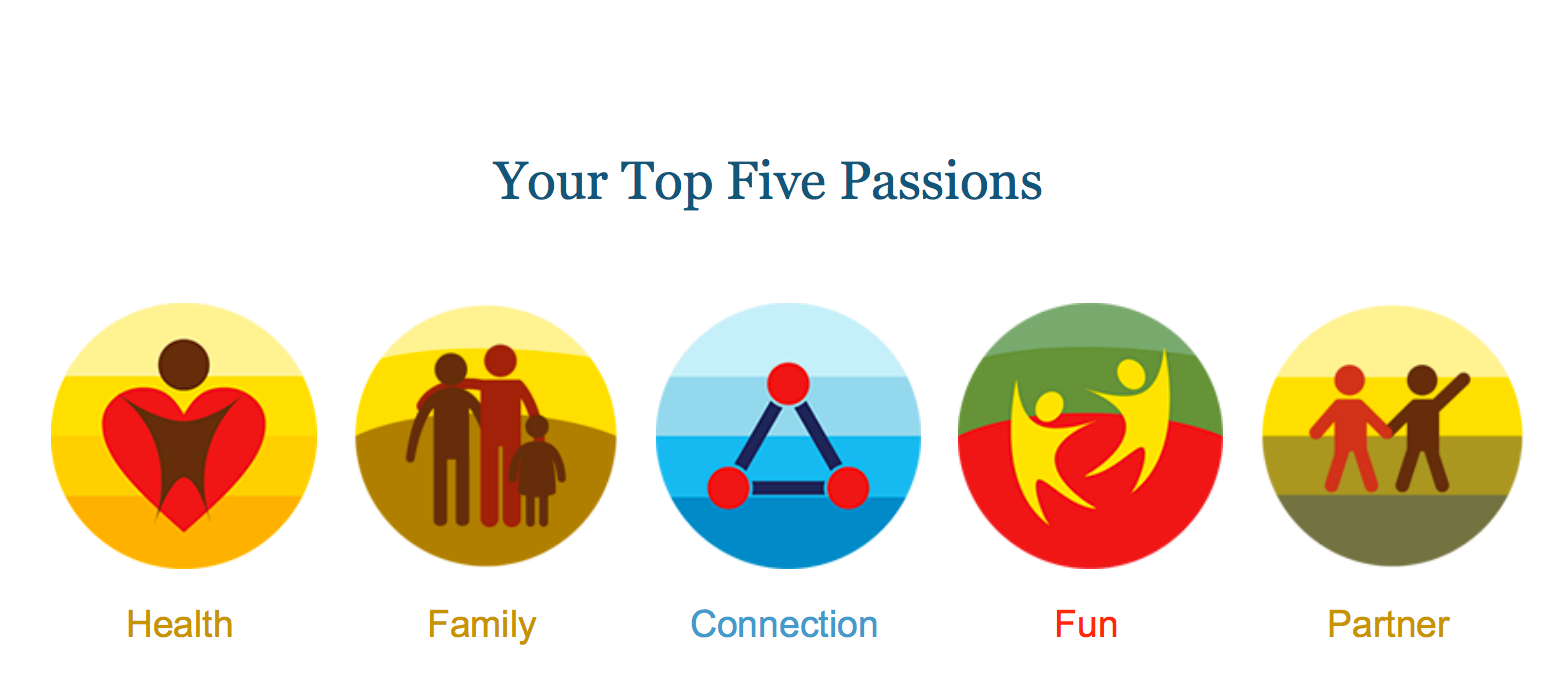
“When I was born I became the visible corner of a folded map. The map has more than one route. More than one destination. The map that is the unfolding self is not exactly leading anywhere. The arrow that says YOU ARE HERE is your first coordinate. There is a lot that you can't change when you are a kid. But you can pack for the journey . . .” ― Jeanette Winterson, Why Be Happy When You Could Be Normal?






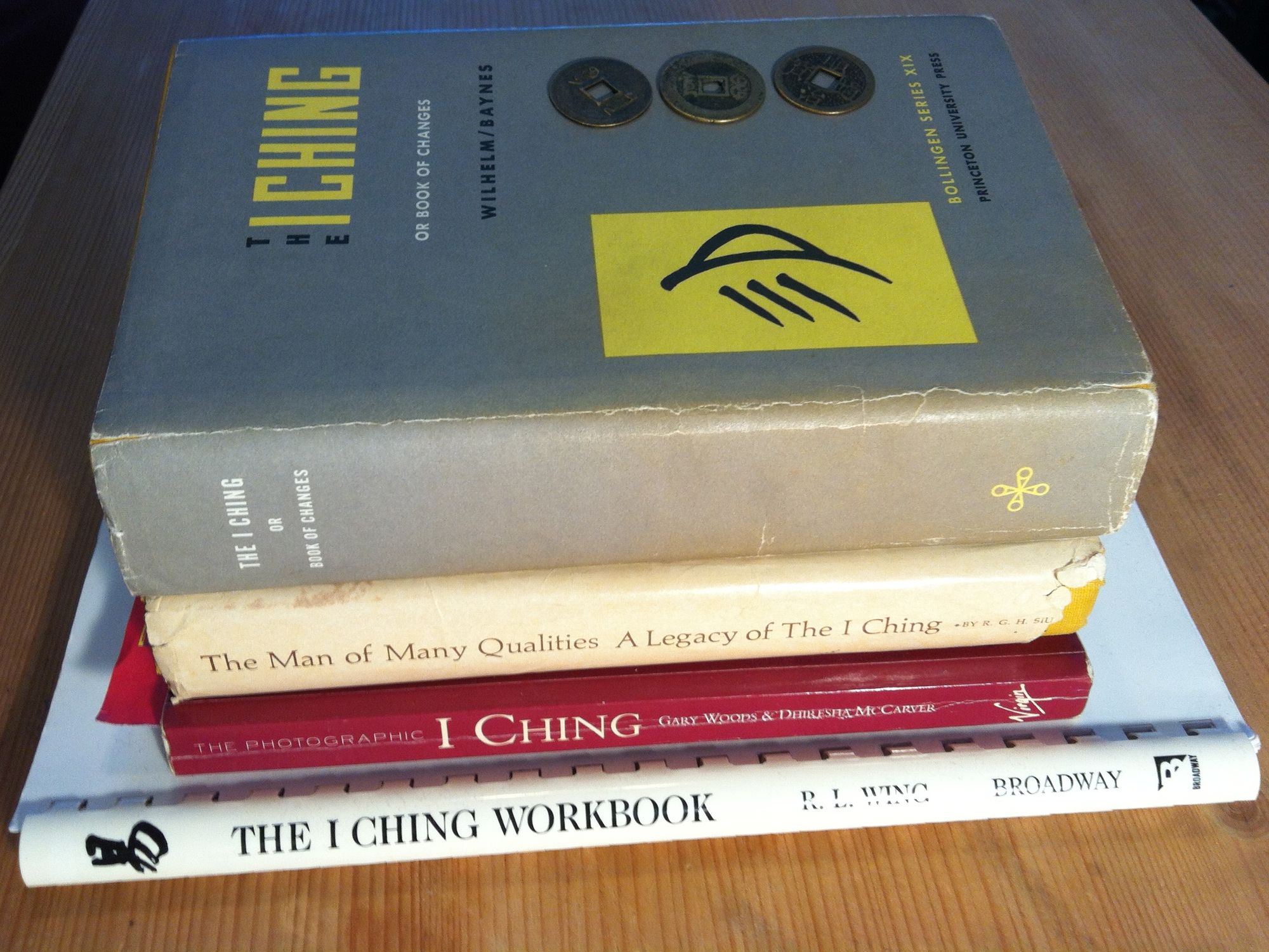


'Ikigai' Discover your reason for being
Ikigai (ee-key-guy) is a Japanese concept that combines the terms iki, meaning “alive” or “life,” and gai, meaning “benefit” or “worth.”
When combined, these terms mean that which gives your life worth, meaning, or purpose. Ikigai is similar to the French term “raison d’etre” or “reason for being.” or "plan de vida" in Italian culture.
The concept of ikigai is said to have evolved from the basic health and wellness principles of traditional Japanese medicine. This medical tradition holds that physical wellbeing is affected by one’s mental–emotional health and sense of purpose in life.
Japanese psychologist Michiko Kumano (2017) has said that ikigai is a state of wellbeing that arises from devotion to activities one enjoys, which also brings a sense of fulfillment.
Michiko further distinguishes ikigai from transitory pleasure (hedonia, in the ancient Greek sense) and aligns it with eudaimonia – the ancient Greek sense of a life well lived, leading to the highest and most lasting form of happiness.
Ikigai also resonates with Cognitive–Behavioral Therapy’s emphasis on pursuing activities that produce enjoyment and a sense of mastery, specifically as a way to alleviate depressive disorder.
Ken Mogi, a neuroscientist and author of Awakening Your Ikigai (2018, p. 3), says that ikigai is an ancient and familiar concept for the Japanese, which can be translated simply as “a reason to get up in the morning” or, more poetically, “waking up to joy.”
Ikigai also appears related to the concept of flow, as described in the work of Hungarian–American psychologist Mihaly Csikszentmihalyi. For Csikszentmihalyi, flow occurs when you are in your “zone,” as they say of high-performing athletes.
Flow is a string of “best moments” or moments when we are at our best. These best moments “usually occur when a person’s body or mind is stretched to its limit, in a voluntary effort to accomplish something difficult and worthwhile” (Csikszentmihalyi, 1990).
Flow can be said to occur when you are consistently doing something you love and that you are good at, with the possible added benefit of bringing value to others’ lives. In such a case, flow might be seen as in tune with your ikigai, or activities that give your life meaning and purpose.
It is important to note that ikigai does not typically refer only to one’s personal purpose and fulfillment in life, without regard to others or society at large.
Although it has had some historical shifts in meaning, ikigai has usually been cited as both a personal pursuit and one of benefit to others. In the end, ikigai brings meaning, purpose, and fulfillment to your life, while also contributing to the good of others.
Further, it is said that everyone has an ikigai – their particular intersection of passion, talent, and potential to benefit others. It is only a matter of finding it. The journey to ikigai might require time, deep self-reflection, and effort, but it is one we can all make.
The concept of ikigai as a purpose in life with both personal and social dimensions is captured by the well-known ikigai diagram. This diagram includes overlapping spheres covering:
- What you love
- What you are good at
- What the world needs
- What you can get paid for
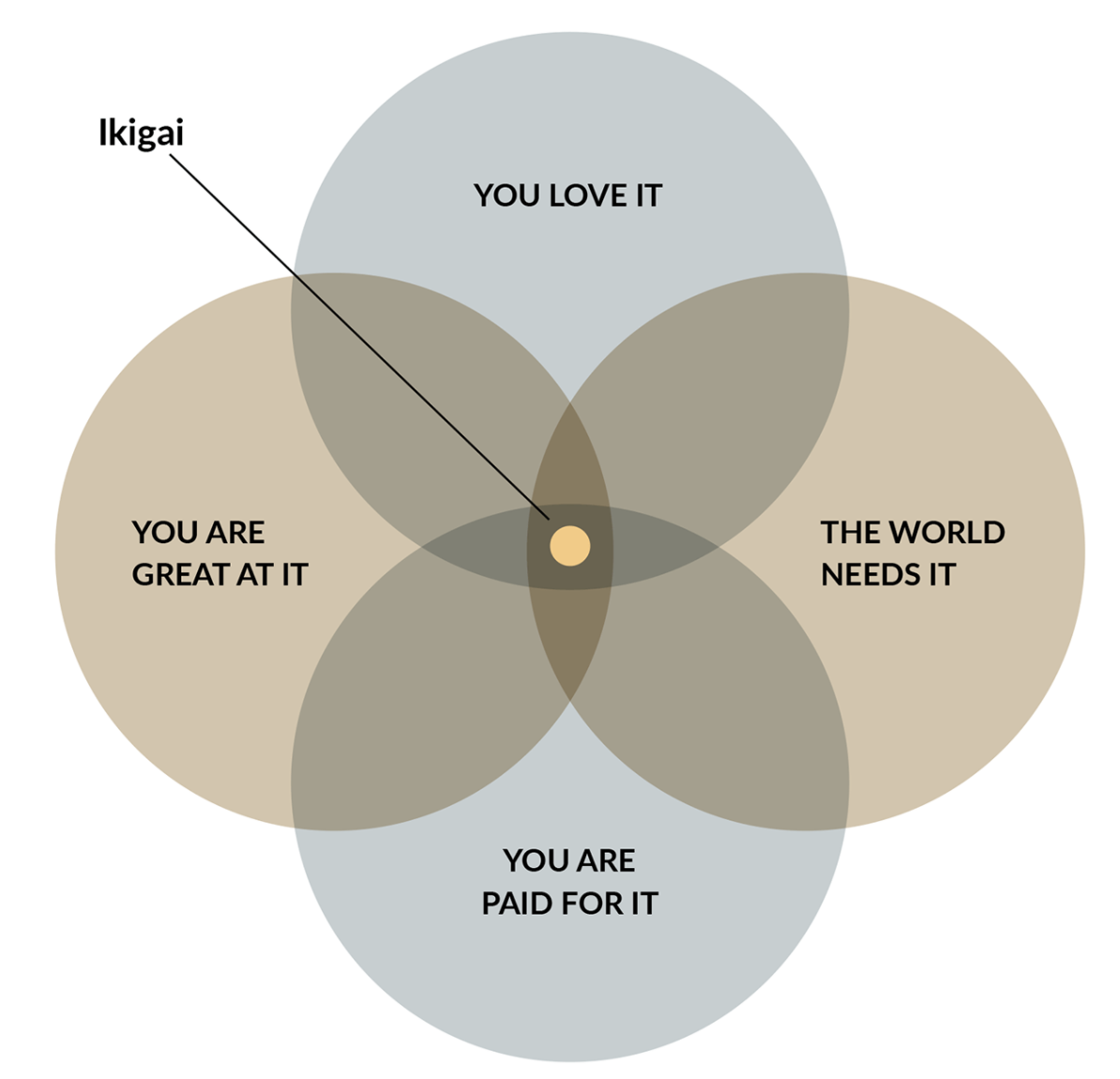
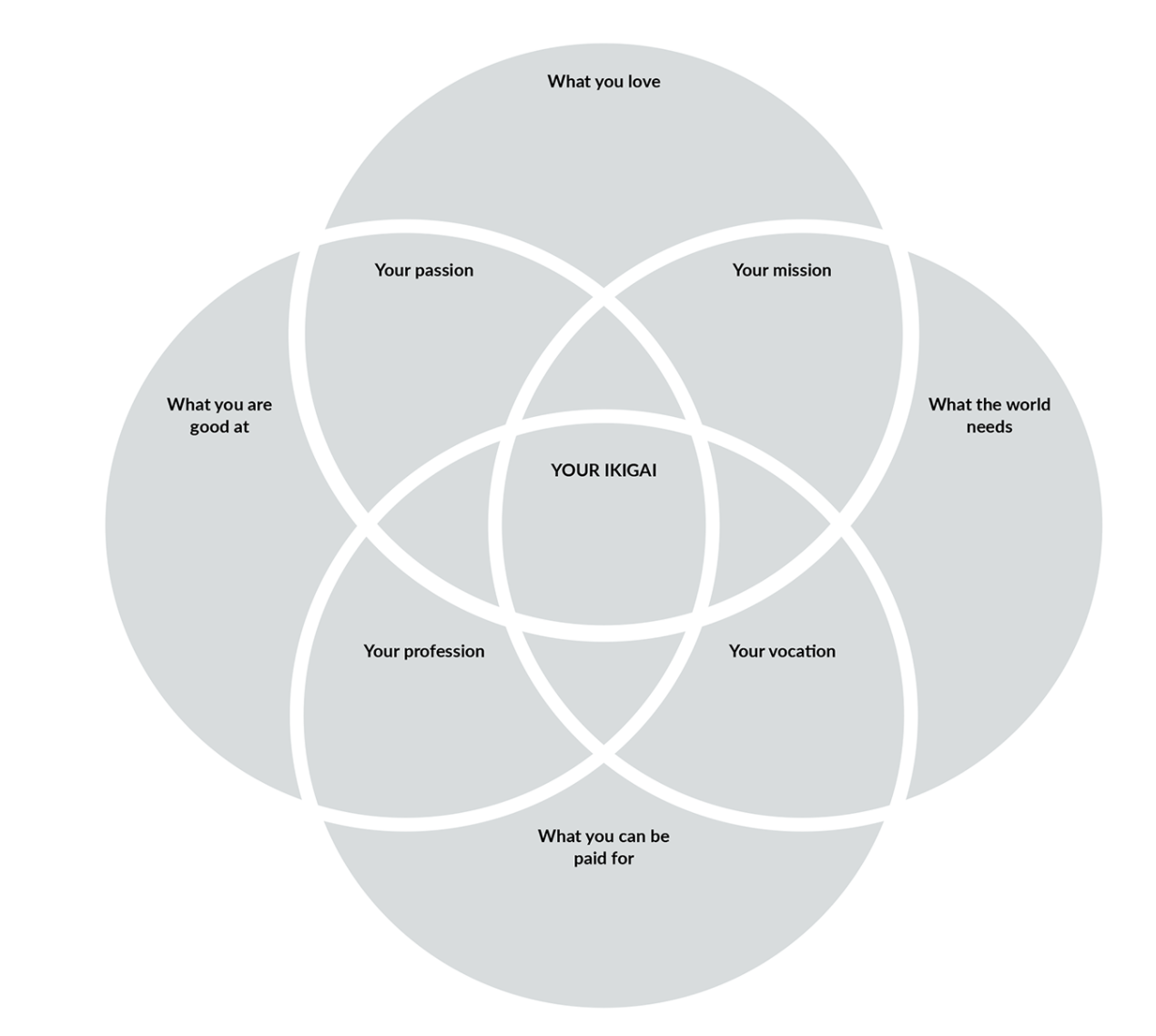
As this diagram shows, ikigai holds the central position and involves four major spheres of interest and how they might overlap in one’s life.
In trying to determine your own personal ikigai with the help of such a diagram, you would fill in each sphere with its appropriate content based on your own experiences, self-knowledge, and understanding of the world.
Some of the content that would go into these spheres might come easily to you. Other content might take more time and self-reflection. In any case, filling in such a diagram can help clarify where you stand in your search for ikigai and how to make any needed adjustments to attain this sometimes elusive way of being.
You Love It
This sphere includes what we do or experience that brings us the most joy in life and makes us feel most alive and fulfilled. What we love in this sense might be sailing, writing poetry, rock climbing, singing in a rock band, reading historical novels, spending leisure time with friends, etc.
What is important is that we allow ourselves to think deeply about what we love, without any concern for whether we are good at it, whether the world needs it, or if we can get paid for doing it.
You Are Great at It
This sphere includes anything you are particularly good at, such as skills you’ve learned, hobbies you’ve pursued, talents you’ve shown since an early age, etc. What you are good at might be, for example, playing the piano, being empathic, public speaking, sports, brain surgery, or painting portraits.
This sphere encompasses talents or capabilities, whether or not you are passionate about them, whether the world needs them, or if you can get paid for them.
The World Needs It
The “world” here might be humanity as a whole, a small community you are in touch with or anything in between. What the world needs might be based on your impressions or needs expressed by others. The world’s needs might include skilled nursing, clean water, home heating, election day volunteers, or improved police training.
This domain of ikigai connects most explicitly with other people and doing good for them, beyond one’s own needs.
You Are Paid for It
This dimension of the diagram also refers to the world or society at large, in that it involves what someone else is willing to pay you for or “what the market will bear.” You might be passionate about writing poetry or very good at rock climbing, but this does not necessarily mean you can get paid for it.
Whether you can get paid for your passions or talents depends on factors such as the state of the economy, whether your passions/talents are in demand, etc.
Passion, Mission, Vocation, Profession
Jeffrey Gaines, Ph.D, The Philosophy of Ikigai: 3 Examples About Finding Purpose. Shares this concept further.
- At the intersection of what you love and what you are good at is your passion.
- At the intersection of what you love and what the world needs is your mission.
- At the intersection of what the world needs and what you can get paid for is your vocation.
- At the intersection of what you are good at and what you can get paid for is your profession.
A “sweet spot” within this ikigai diagram would therefore involve something you are passionate about, that you are also good at, that the world needs now, and for which someone will pay you. For example, if I am passionate about crisis counseling, am also skilled at it, there is a need for it in my world at the time, and I have several job offers in this field, I might say I’ve found my ikigai sweet spot.
Happiness-relevant activities
In recent years, some authors (e.g., Lyubomirsky et al. 2005) have suggested that engaging in "happiness-relevant activities" (especially intentional activities) represents one way to facilitate psychological well-being.
Like Robert J Vallerand, We agree with this position and further posit that having a passion for an activity represents an important type of high involvement in activities that may lead to sustainable positive effects on psychological well-being.
Indeed, because people who have a passion for a given activity typically engage in this activity several hours each week, they may be experiencing positive affective experiences that should facilitate well-being. However, not all intentional activities facilitate psychological well-being. As will be described below, two types of passion exist.
Although one type called harmonious passion is expected to facilitate sustainable psychological well-being through the repeated experience of positive emotions during task engagement, the second type of passion, called obsessive, is not expected to produce such effects and may even arouse negative emotions and interfere with leading a balanced, happy life.
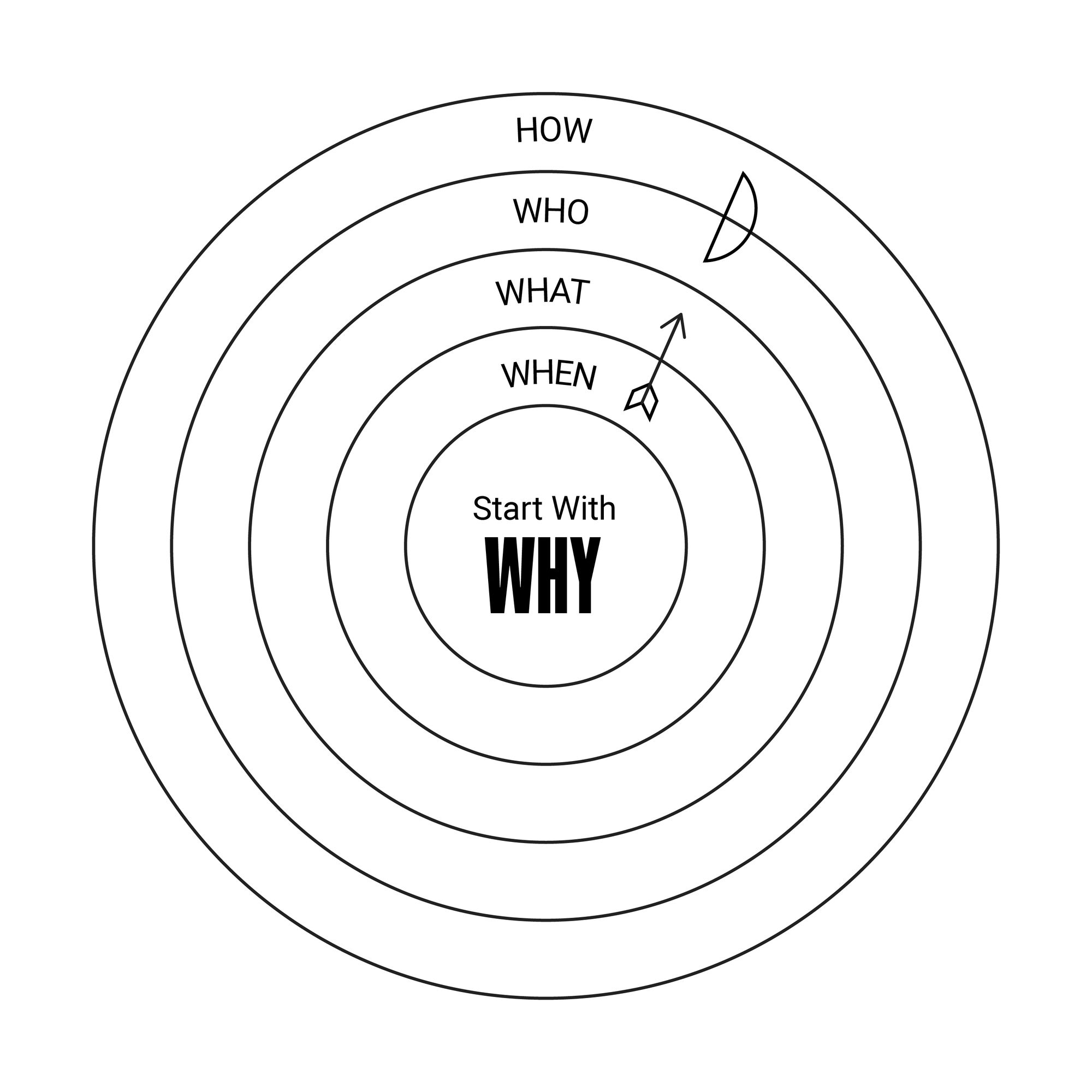
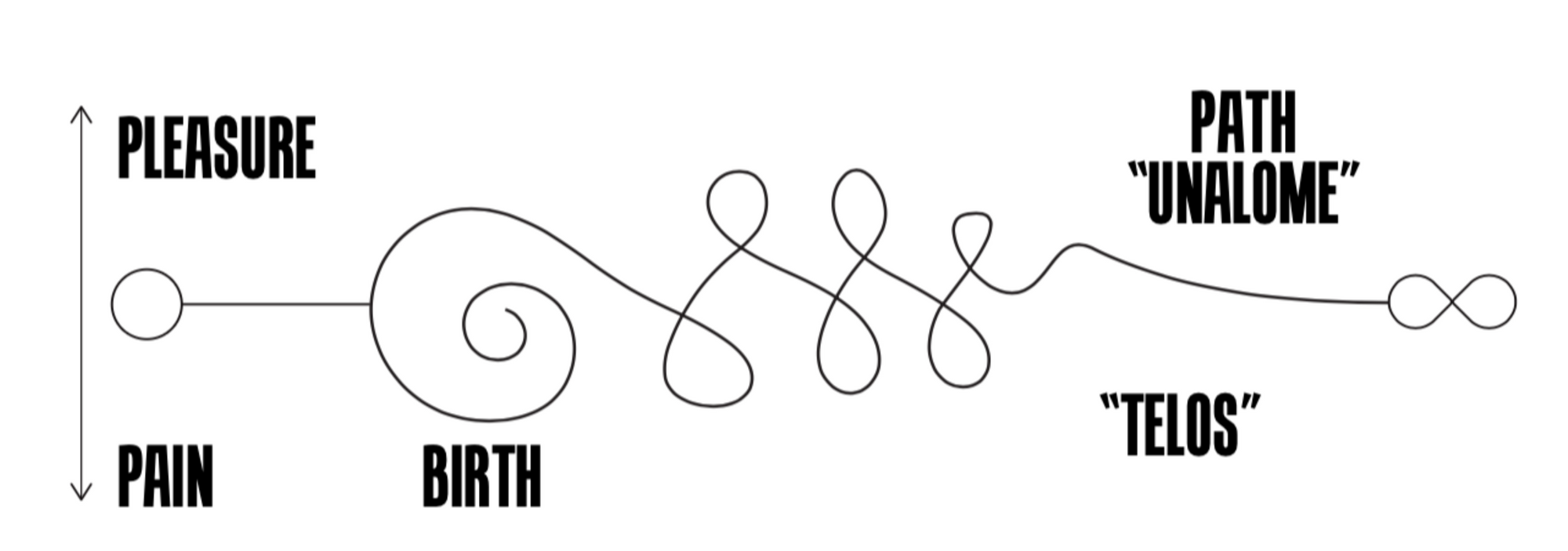
The Concept of Passion
Passion has generated a lot of attention from philosophers. Their focus, however, was more on the emotional aspect of passion than on its motivational dimension as is the case with the present approach on passion. Two perspectives have emerged (see Rony 1990). The first posits that passion entails a loss of reason and control as exemplified in the writings of Plato (429-347 BC) and Spinoza (1632-1677).
In line with the etymology of the word passion (from the latin "passio" for suffering) people afflicted with passion are seen as experiencing a kind of suffering, as if they were slaves to their passion, because it comes to control them.
The second perspective portrays passion in a more positive light. For instance, Descartes (1596-1650) sees passions as strong emotions with inherent behavioral tendencies that can be positive as long as reason underlies the behavior.
Finally, Hegel (1770-1831) argues that passions are necessary to reach the highest levels of achievement. Thus, this second view portrays passion in a more positive light as some favorable outcomes may be experienced when individuals are in control of their passion.

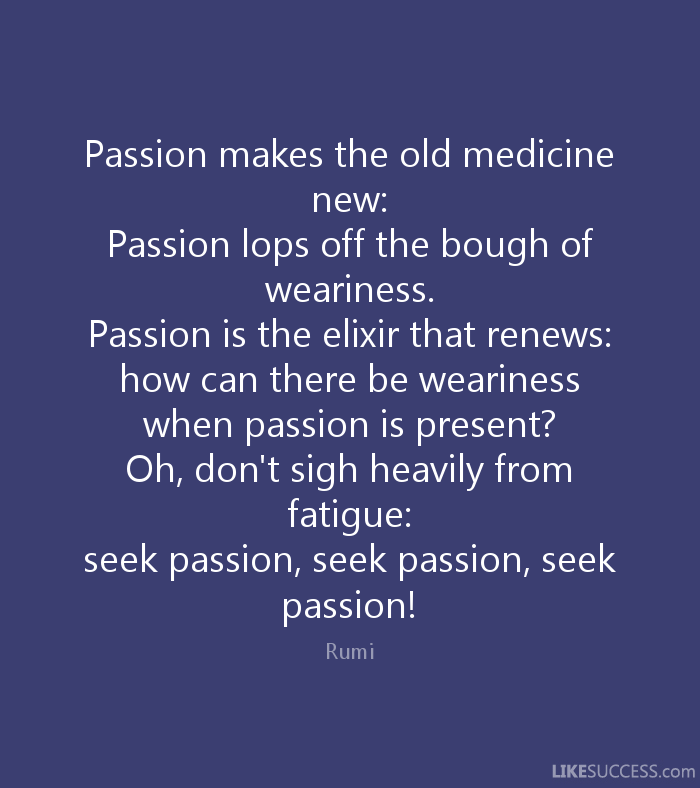
Passion is an action
Very little has been written on the psychology of passion for activities until recently. The few psychologists who have looked at the concept have underscored its motivational aspect.
For instance, some authors have proposed that people will spend large amounts of time and effort in order to reach their passionate goals (see Frijda et al. 1991) or work on the activity that they love (Baum & Locke 2004). Nearly all empirical work on passion has been conducted in the area of close relationships under the rubric of passionate love (e.g., Hatfield & Walster 1978).
Although such research is important, it does not deal with the main topic at hand, namely passion toward activities.
Finally, while several theories have been proposed wherein loving activity is hypothesized to lead to some positive benefits, no psychological theory makes the case that your love for a given activity can have either adaptive or deleterious effects on your life; that something you love can be "good" or "bad" for you (see Vallerand 2010 for conceptual comparisons between passion and these other concepts). The duality of passion needs to be accounted for.
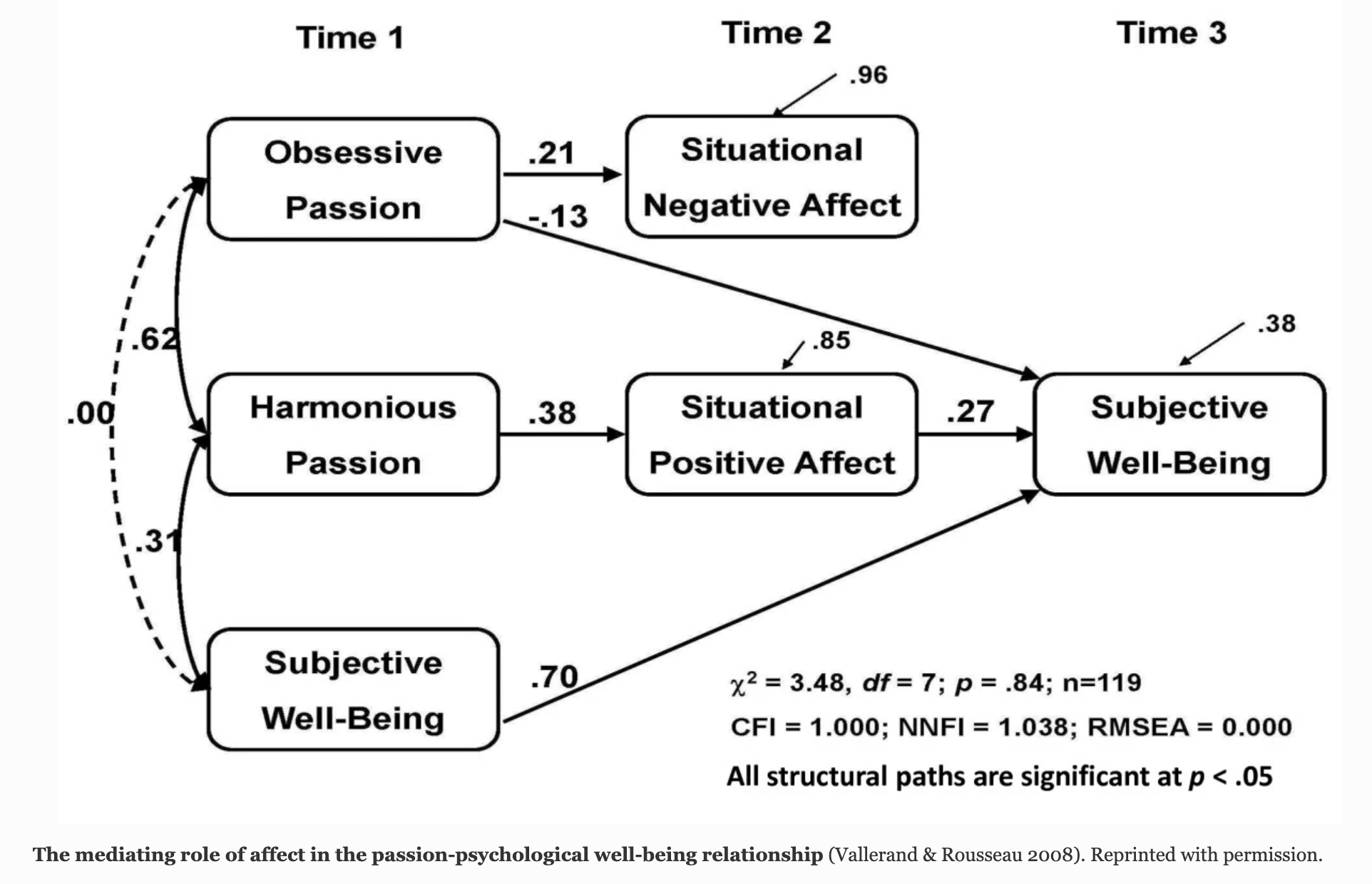
SUMMARY
Uncover where you have a strong inclination toward a self-defining activity that people like (or even love), find important, and in which they invest time and energy on a regular basis.
Discovering your Passions and linking it to your Mission, Vocation and Profession can lead to a very fulfilling life. Perhaps you may even stumble upon your reason for being along the way or in other terms your 'ikigai', "plan de vida' or “raison d’etre”.
When you find it, align your passion and purpose with your internal compass and an inspiring future vision for your life and living legacy. This is where it all becomes clear. Selfcare Global, is my version of this evolving journey :) Thanks for sharing this space with me and I hope this inspires you to uncover your passions in life too! When you do, give it to the world unapologetically and let us know what unfolds!
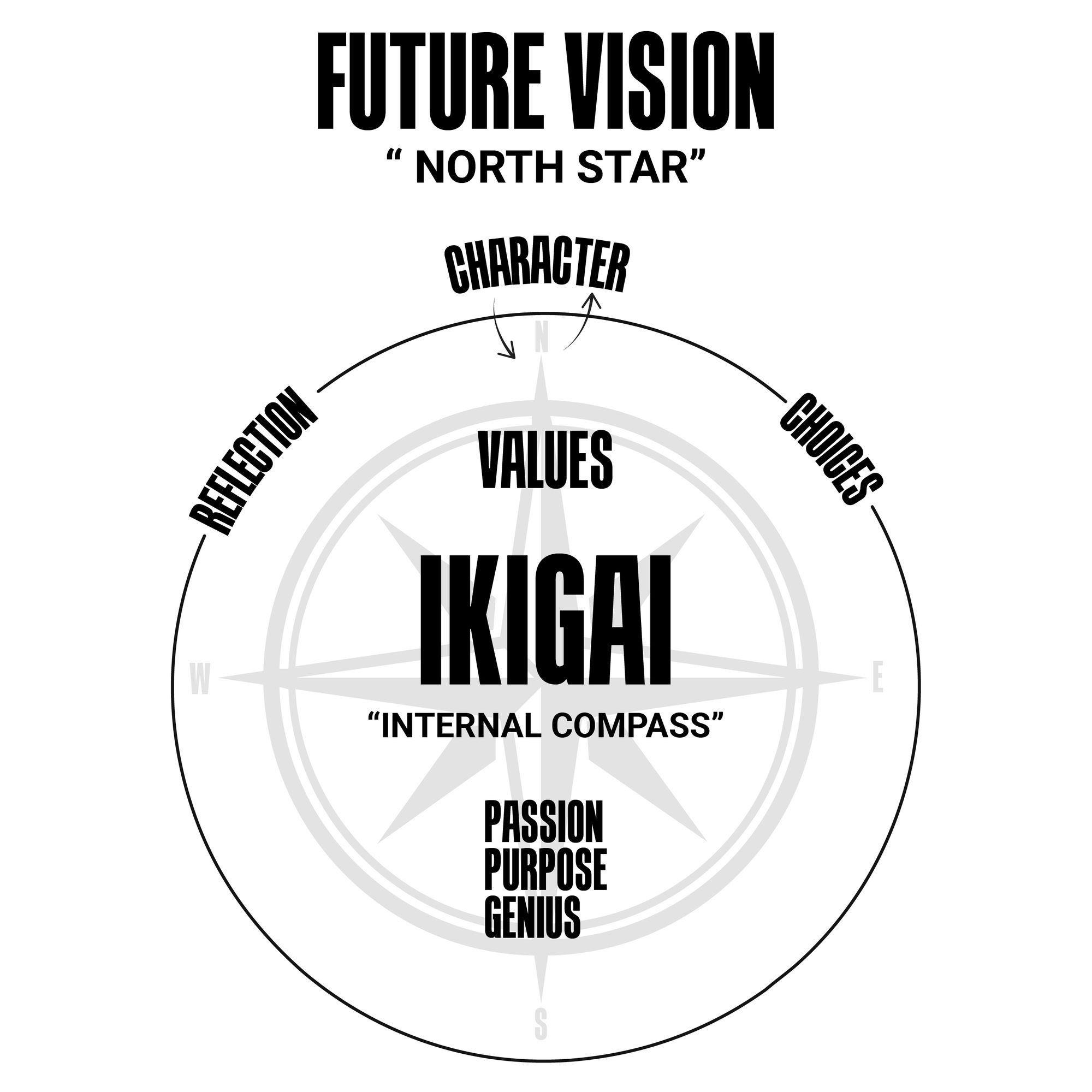
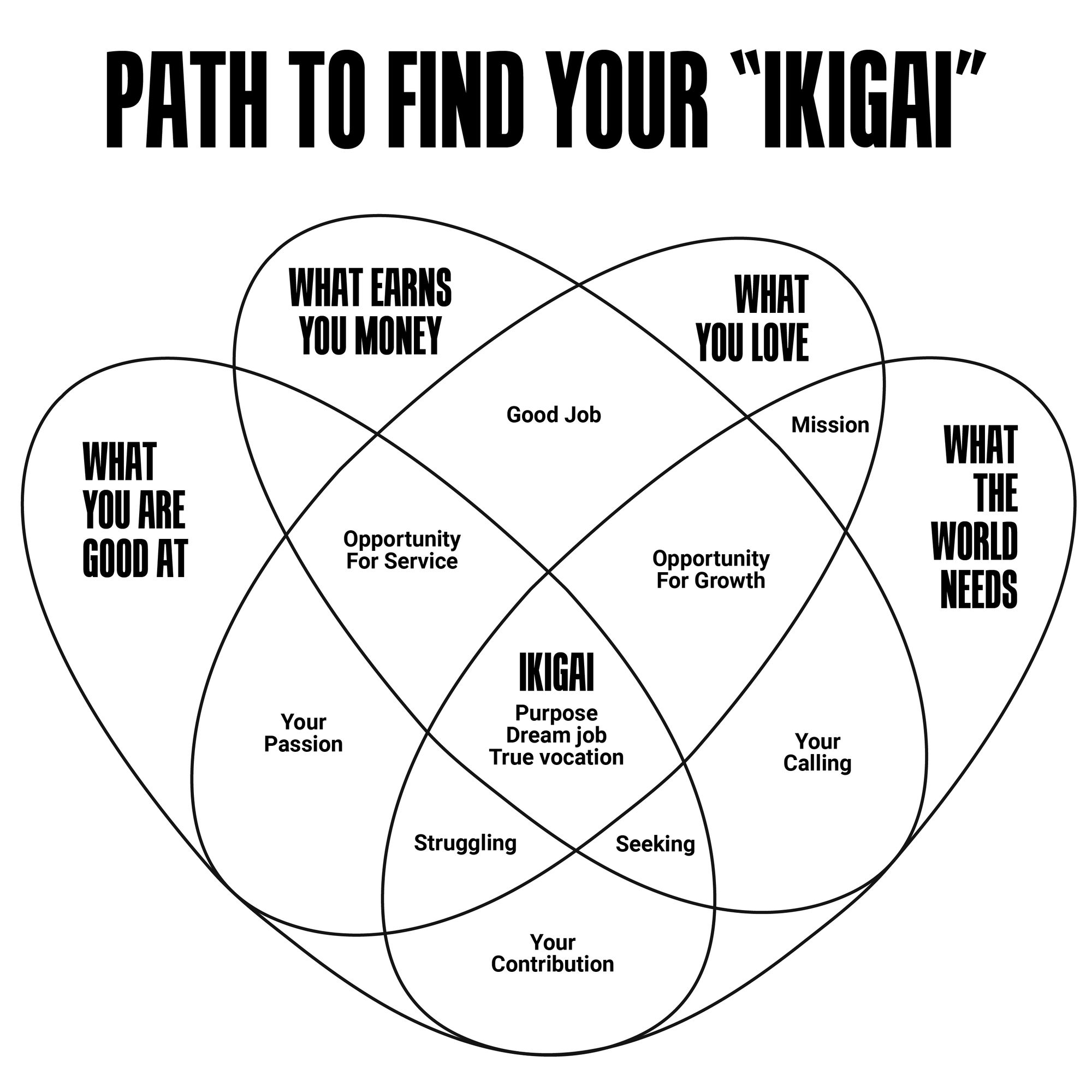
CALL TO ACTION
- Take the PASSION TEST
- Identify your number 1 passion
- Identify your 5 driving passions
- Put your passion in motion ad let it fill you up and get you out of bed each day!
Share your results and insights with the SelfCare Community Here
REFERENCES
With all our REFERENCES We have done our best to reference everyone’s expert opinions, peer-reviewed science, and original thoughts, HIGHLIGHTED IN THE TEXT. So that you can go direct to the source as you read.
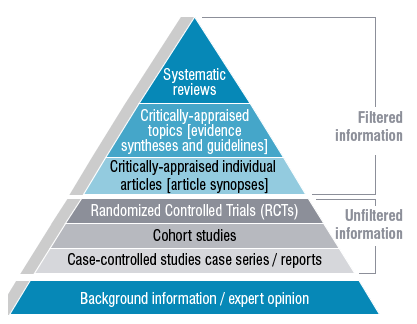
Here are is our referencing process
Here are the 8 points of reference that we consider with each article. We consider what is known, unknown, nature, your innate wisdom, science, ancient wisdom, evidence-based practice, the hierarchy of evidence, and even the energetic laws that we are yet to understand or quantify.



